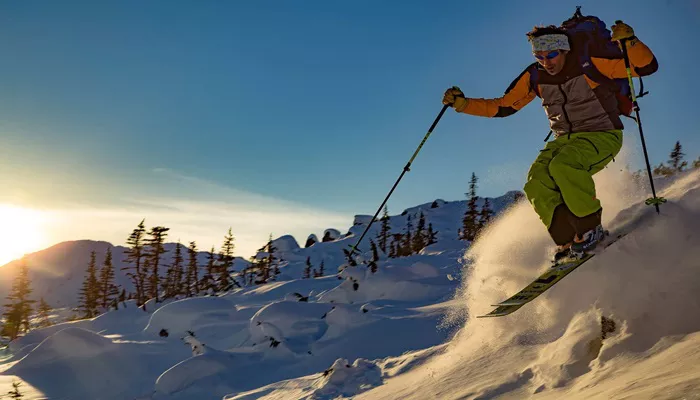Alpine skiing is one of the most thrilling winter sports, combining speed, technique, and breathtaking mountain landscapes. Around the world, ski resorts compete to offer the longest and fastest downhill experiences, drawing professional athletes and adrenaline-seekers alike. Some tracks stand out due to their sheer length, high speeds, and challenging terrain, making them iconic destinations in the skiing world.
This article explores the longest and fastest alpine skiing tracks globally, detailing their characteristics, locations, and what makes them legendary among skiers.
The Longest Alpine Skiing Track: La Sarenne, Alpe d’Huez, France
1. Location and Overview
The title of the longest continuous alpine skiing track belongs to La Sarenne in Alpe d’Huez, France. This legendary piste stretches an impressive 16 kilometers (10 miles), offering an unforgettable descent with an altitude drop of over 1,800 meters (5,905 feet).
2. Terrain and Difficulty Level
La Sarenne is classified as a black run, which means it is intended for advanced and expert skiers. While some sections are moderately steep, the track gradually eases into a more relaxed descent, allowing skiers to enjoy the surrounding scenery of the Écrins National Park.
3. The Experience of Skiing La Sarenne
Night Skiing: La Sarenne is one of the few pistes in the world offering night skiing with special lighting, enhancing the thrill.
Varied Terrain: The top section is steep and demanding, but as the descent progresses, the track transitions into gentler slopes.
Breathtaking Views: The panoramic views of the French Alps make La Sarenne a bucket-list destination for alpine skiing enthusiasts.
The Fastest Alpine Skiing Track: The Streif, Kitzbühel, Austria
1. Location and Overview
When it comes to speed, no track is more iconic than The Streif, located in Kitzbühel, Austria. This world-famous downhill course is part of the Hahnenkamm Race, the most prestigious event in the FIS Alpine Ski World Cup.
2. Characteristics of the Streif
Length: 3.3 kilometers (2.05 miles)
Vertical Drop: 860 meters (2,822 feet)
Top Speed: Skiers can reach speeds exceeding 140 km/h (87 mph)
Average Gradient: 27%
Steepest Section: The infamous Mausefalle (“Mouse Trap”) has a terrifying 85% gradient
3. Why the Streif Is Considered the Fastest
Dangerous Drops: The track features sudden drops, particularly at the Mausefalle, where racers experience freefall before landing.
Sharp Turns and Narrow Paths: Precision and quick reflexes are necessary to navigate the challenging corners, including the infamous Steilhang.
Icy Conditions: The course is meticulously prepared with artificial ice to increase speed, making it extremely difficult to maintain control.
Record Speeds: Some of the fastest runs on The Streif have been clocked at over 145 km/h (90 mph), making it one of the most extreme ski courses globally.
Other Notable Long and Fast Alpine Ski Tracks
1. Verbier, Switzerland – Tortin to Le Châble
Length: 15 kilometers (9.3 miles)
One of Switzerland’s longest runs, featuring wide slopes and scenic valley views.
Known for its challenging moguls and variable snow conditions.
2. Zermatt, Switzerland – Klein Matterhorn to Zermatt
Length: 25 kilometers (15.5 miles)
One of the longest continuous ski runs in the world.
Features an altitude drop of 2,200 meters (7,218 feet) from the glacier down to the town.
3. Wengen, Switzerland – Lauberhorn
Length: 4.5 kilometers (2.8 miles)
Home to the Lauberhorn Downhill, the longest race in the FIS World Cup.
Racers reach speeds of 160 km/h (99 mph) on certain sections, making it one of the fastest races in professional skiing.
Tips for Skiers Attempting These Legendary Tracks
1. Be Prepared for the Length
For long ski runs such as La Sarenne or Klein Matterhorn, endurance is essential. Skiers should take breaks when necessary and stay hydrated.
2. Train for High-Speed Descents
For fast downhill runs like The Streif, it is crucial to practice on steeper slopes and get comfortable with high speeds before attempting extreme tracks.
3. Use the Right Equipment
Race Skis: Stiffer skis with a longer radius provide stability at high speeds.
Protective Gear: Helmets, back protectors, and padded suits are recommended for high-speed skiing.
Ski Goggles: Essential for visibility, especially at high speeds where wind and snow conditions change rapidly.
4. Follow Safety Guidelines
Always check weather and avalanche conditions before skiing extreme slopes.
Respect resort regulations and closed-off sections for safety.
Ski with a partner or guide when attempting challenging descents.
Conclusion
For alpine skiing enthusiasts seeking the ultimate challenge, La Sarenne in Alpe d’Huez offers the longest exhilarating descent, while The Streif in Kitzbühel is renowned for being the fastest and most dangerous downhill track. Whetheryou prefer long scenic rides or adrenaline-pumping speed, these legendary ski tracks provide unforgettable experiences for skiers worldwide. If you’re planning your next ski adventure, these destinations should definitely be on your list!

